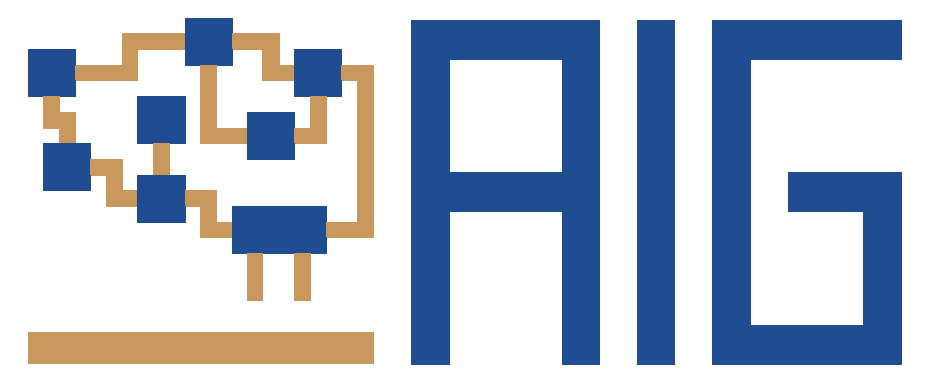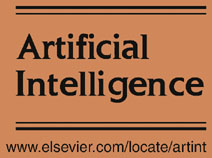Program
All plenary sessions, invited talks, and technical sessions take place in rooms 1-3 of building 2. Demo sessions take place in rooms 4-5 of building 2. Coffee breaks take place in the foyer of building 2 and lunches in the cafeteria (building 4). See the campus map for the exact locations.
Technical talks are 25 minutes (20 minutes presentation and 5 minutes discussion).
| Wednesday, September 18 | |
| Time | Program |
|---|---|
| 09:00-09:30 | Welcome |
| 09:30-10:30 | Invited Talk (Chair: Matthias Thimm) Serena Villata: The Long Road to Trustworthy Natural Language Argumentation |
| 10:30-11:00 | <Coffee break> |
| 11:00-12:40 | Technical Session 1 (Chair: Floris Bex) Jack Mumford, Stefan Sarkadi, Katie Atkinson and Trevor Bench-Capon: Applying Argument Schemes for Simulating Online Review Platforms Ella Schad, Kamila Górska, Eimear Maguire, Ramon Ruiz-Dolz, Melvin Abraham, John Lawrence and Jacky Visser: Annotating and mining hypotheses in argumentation Adam Wyner, Tomasz Zurek and Johannes P. Wallner: Value-based Reasoning in ASPIC+ Davide Ceolin and Laura Ootes: Review Argumentation at Scale |
| 12:40-13:50 | <Lunch break> |
| 13:50-15:30 | Technical Session 2 (Chair: Henning Wachsmuth) Zvonimir Delas, Brian Plüss and Ramon Ruiz-Dolz: An Argumentation Scheme-based Framework for Automatic Reconstruction of Natural Language Enthymemes Adrian de Wynter and Tangming Yuan: “I’d Like to Have an Argument, Please”: Argumentative Reasoning in Large Language Models Premtim Sahitaj, Ramon Ruiz-Dolz, Ariana Sahitaj, Vera Schmitt, Salar Mohtaj, Sebastian Möller and Ata Nizamoglu: From Construction to Application: Advancing Argument Mining with the Large-Scale KIALOPRIME Dataset Guilherme Trajano, Débora C. Engelmann, Rafael H. Bordini, Stefan Sarkadi, Jack Mumford and Alison R. Panisson: Translating Natural Language Arguments to Computational Arguments using LLMs |
| 15:30-16:00 | <Coffee break> |
| 16:00-16:50 | Technical Session 3 (Chair: Odinaldo Rodrigues) Yannis Dimopoulos, Wolfgang Dvořák and Matthias König: Connecting Abstract Argumentation and Boolean Networks Atefeh Keshavarzi Zafarghandi and Johannes P. Wallner: Complexity of Semi-Stable Semantics in Abstract Dialectical Frameworks |
| 16:50-18:00 | Demo session 1 (Chair: Tjitze Rienstra) Ewelina Gajewska, Katarzyna Budzynska and Barbara Konat: Analytics for Rhetorical Arguments in Discussions on Polarised Issues José Ruiz Alarcón and Timotheus Kampik: QBAF-Py: Quantitative Bipolar Argumentation in C with Python Bindings Michele Persiani: PyPLAF: Probabilistic Logical Argumentation Frameworks in Python Florian Ruosch, Joel Watter, Cristina Sarasua and Abraham Bernstein: Documents with Integrated Visually Annotated Arguments Florian Ruosch, John Lawrence, Cristina Sarasua and Abraham Bernstein: A Unified Benchmark for Argument Mining Maciej Uberna, Katarzyna Budzynska, Marcin Koszowy and Saint-Dizier Patrick: Analytics for Linguistically Characterising Rephrased Arguments Jordan Robinson, Katie Atkinson, Simon Maskell and Chris Reed: On Diagnostic Arguments in Abstract Argumentation Frameworks |
| 18:30 | Welcome reception at Villa Bechem |
| Thursday, September 19 | |
| Time | Program |
| 09:00-10:00 | Invited Talk (Chair: Chris Reed) Ulrike Hahn: Expanding the Scope of Bayesian Argumentation |
| 10:00-10:30 | <Coffee break> |
| 10:30-12:10 | Technical Session 4 (Chair: Sanjay Modgil) Clara Seyfried, Chris Reed and Yuki Kamide: Defining Argumentative Discourse Units as Clauses: Psycholinguistic Evidence Chiaki Sakama: Argument and Belief Daphne Odekerken: Finding Relevant Updates in Incomplete Argumentation Frameworks Nico Potyka and Richard Booth: An Empirical Study of the Behaviour of Quantitative Bipolar Argumentation Frameworks for Truth Discovery |
| 12:10-12:20 | Announcement ICCMA'25 |
| 12:20-12:40 | Announcement Argument & Computation |
| 12:40-13:50 | <Lunch break> |
| 13:50-15:30 | Technical Session 5 (Chair: Katie Atkinson) Andreas Xydis, Ionut Moraru and Elizabeth Sklar: Strategising in dialogues handling forward extension of enthymemes Nicole Orr and John Lawrence: Protocol Switching in a Multi-Agent Dialogue System Jonathan Clayton, Marco Damonte and Robert Gaizauskas: Parsing Graphical Summaries from Argumentative Dialogues Anthony Hunter: Dialogical Argumentation for Behaviour Change with Multiple Persuasion Goals |
| 15:30-16:00 | <Coffee break> |
| 16:00-16:50 | Technical Session 6 (Chair: Andreas Xydis) Roos Scheffers, Floris Bex and Annemarie Borg: Related Explanations in Formal Argumentation, an Empirical Study Anna Rapberger and Francesca Toni: On the Robustness of Argumentative Explanations |
| 16:50-18:00 | Demo session 2 (Chair: Tjitze Rienstra) Nico Potyka and Richard Booth: An Empirical Study of the Behaviour of Quantitative Bipolar Argumentation Frameworks for Truth Discovery Nicole Orr and John Lawrence: Protocol Switching in a Multi-Agent Dialogue System Florian Ruosch, Cristina Sarasua, Chris Reed and Abraham Bernstein: Toward the Argument Web of Science Jeff Thompson and Kristinn R. Thorisson: ABA Argument Graphs with Constraints Yilin Xia, Daphne Odekerken, Shawn Bowers and Bertram Ludaescher: Layered Visualization of Argumentation Frameworks Alexander Greßler, Wolfgang Dvořák and Stefan Woltran: The GSAF Solver and Verifier Xiaolong Liu and Weiwei Chen: On the Proportional Acceptability of Arguments in Abstract Argumentation |
| 18:30 | Departure to conference dinner from conference venue |
| 19:00-23:00 | Conference dinner at Rohrmeisterei (https://www.rohrmeisterei-schwerte.de) |
| 23:00 | Departure from conference dinner |
| Friday, September 20 | |
| Time | Program |
| 09:30-10:30 | Invited Talk (Chair: Tjitze Rienstra) Leila Amgoud: Semantics in Argumentation: Classifications and Challenges |
| 10:30-11:00 | <Coffee break> |
| 11:00-12:40 | Technical Session 7 (Chair: Henry Prakken) Marcello D’Agostino and Sanjay Modgil: Extending Dialectical Classical Logic Argumentation with Unrestricted Rebut and Occam Razor Defeats Michael A. Müller, Blaž Istenič Urh, Teodor-Ștefan Zotescu and Ulle Endriss: Breaking the Cycle. Preference-based Aggregation for Cyclic Argumentation Frameworks Kees van Berkel and Sanjay Modgil: A Nonmonotonic Proof Theory for Dialectical Argumentation Beishui Liao and Leon van der Torre: Attack-defense semantics of argumentation |
| 12:40-13:50 | <Lunch break> |
| 13:50-15:30 | Technical Session 8 (Chair: Beishui Liao) Kees van Berkel, Christian Straßer and Zheng Zhou: Towards an Argumentative Unification of Default Reasoning Paul Cibier and Jean-Guy Mailly: Graph Convolutional Networks and Graph Attention Networks for Approximating Arguments Acceptability Michael A. Müller and Davide Grossi: Measuring the Impact of Arguments on Admissibility in Abstract Argumentation Tuomo Lehtonen, Anna Rapberger, Francesca Toni, Markus Ulbricht and Johannes P. Wallner: On Computing Admissibility in ABA |
| 15:30-16:00 | Closing |
| 16:00-16:30 | <Farewell coffee break> |
- Davide Ceolin and Laura Ootes:
Review Argumentation at Scale - Paul Cibier and Jean-Guy Mailly:
Graph Convolutional Networks and Graph Attention Networks for Approximating Arguments Acceptability - Jonathan Clayton, Marco Damonte and Robert Gaizauskas:
Parsing Graphical Summaries from Argumentative Dialogues - Marcello D'Agostino and Sanjay Modgil:
Extending Dialectical Classical Logic Argumentation with Unrestricted Rebut and Occam Razor Defeats - Zvonimir Delas, Brian Plüss and Ramon Ruiz-Dolz:
An Argumentation Scheme-based Framework for Automatic Reconstruction of Natural Language Enthymemes - Adrian de Wynter and Tangming Yuan:
"I’d Like to Have an Argument, Please": Argumentative Reasoning in Large Language Models - Yannis Dimopoulos, Wolfgang Dvořák and Matthias König:
Connecting Abstract Argumentation and Boolean Networks - Anthony Hunter:
Dialogical Argumentation for Behaviour Change with Multiple Persuasion Goals - Atefeh Keshavarzi Zafarghandi and Johannes P. Wallner:
Complexity of Semi-Stable Semantics in Abstract Dialectical Frameworks - Tuomo Lehtonen, Anna Rapberger, Francesca Toni, Markus Ulbricht and Johannes P. Wallner:
On Computing Admissibility in ABA - Beishui Liao and Leon van der Torre:
Attack-defense semantics of argumentation - Michael A. Müller and Davide Grossi:
Measuring the Impact of Arguments on Admissibility in Abstract Argumentation - Michael A. Müller, Blaž Istenič Urh, Teodor-Ștefan Zotescu and Ulle Endriss:
Breaking the Cycle - Preference-based Aggregation for Cyclic Argumentation Frameworks - Jack Mumford, Stefan Sarkadi, Katie Atkinson and Trevor Bench-Capon:
Applying Argument Schemes for Simulating Online Review Platforms - Daphne Odekerken:
Finding Relevant Updates in Incomplete Argumentation Frameworks - Nicole Orr and John Lawrence:
Protocol Switching in a Multi-Agent Dialogue System - Nico Potyka and Richard Booth:
An Empirical Study of the Behaviour of Quantitative Bipolar Argumentation Frameworks for Truth Discovery - Anna Rapberger and Francesca Toni:
On the Robustness of Argumentative Explanations - Premtim Sahitaj, Ramon Ruiz-Dolz, Ariana Sahitaj, Vera Schmitt, Salar Mohtaj, Sebastian Möller and Ata Nizamoglu:
From Construction to Application: Advancing Argument Mining with the Large-Scale KIALOPRIME Dataset - Chiaki Sakama:
Argument and Belief - Ella Schad, Kamila Górska, Eimear Maguire, Ramon Ruiz-Dolz, Melvin Abraham, John Lawrence and Jacky Visser:
Annotating and mining hypotheses in argumentation - Roos Scheffers, Floris Bex and Annemarie Borg:
Related Explanations in Formal Argumentation, an Empirical Study - Clara Seyfried, Chris Reed and Yuki Kamide:
Defining Argumentative Discourse Units as Clauses: Psycholinguistic Evidence - Guilherme Trajano, Débora C. Engelmann, Rafael H. Bordini, Stefan Sarkadi, Jack Mumford and Alison R. Panisson: Translating Natural Language Arguments to Computational Arguments using LLMs
- Kees van Berkel and Sanjay Modgil:
A Nonmonotonic Proof Theory for Dialectical Argumentation - Kees van Berkel, Christian Strasser and Zheng Zhou:
Towards an Argumentative Unification of Default Reasoning - Adam Wyner, Tomasz Zurek and Johannes P. Wallner:
Value-based Reasoning in ASPIC+ - Andreas Xydis, Ionut Moraru and Elizabeth Sklar:
Strategising in dialogues handling forward extension of enthymemes
*=also accepted as full paper
- Ewelina Gajewska, Katarzyna Budzynska and Barbara Konat:
Analytics for Rhetorical Arguments in Discussions on Polarised Issues - Alexander Greßler, Wolfgang Dvořák and Stefan Woltran:
The GSAF Solver and Verifier - Xiaolong Liu and Weiwei Chen:
On the Proportional Acceptability of Arguments in Abstract Argumentation - Nicole Orr and John Lawrence:
Protocol Switching in a Multi-Agent Dialogue System (*) - Michele Persiani:
PyPLAF: Probabilistic Logical Argumentation Frameworks in Python - Nico Potyka and Richard Booth:
An Empirical Study of the Behaviour of Quantitative Bipolar Argumentation Frameworks for Truth Discovery (*) - Jordan Robinson, Katie Atkinson, Simon Maskell and Chris Reed:
On Diagnostic Arguments in Abstract Argumentation Frameworks - José Ruiz Alarcón and Timotheus Kampik:
QBAF-Py: Quantitative Bipolar Argumentation in C with Python Bindings - Florian Ruosch, John Lawrence, Cristina Sarasua and Abraham Bernstein:
A Unified Benchmark for Argument Mining - Florian Ruosch, Cristina Sarasua, Chris Reed and Abraham Bernstein:
Toward the Argument Web of Science - Florian Ruosch, Joel Watter, Cristina Sarasua and Abraham Bernstein:
Documents with Integrated Visually Annotated Arguments - Jeff Thompson and Kristinn R. Thorisson:
ABA Argument Graphs with Constraints - Maciej Uberna, Katarzyna Budzynska, Marcin Koszowy and Saint-Dizier Patrick:
Analytics for Linguistically Characterising Rephrased Arguments - Yilin Xia, Daphne Odekerken, Shawn Bowers and Bertram Ludaescher:
Layered Visualization of Argumentation Frameworks
Semantics in Argumentation: Classifications and Challenges
Abstract. Argumentation is a common activity in everyday life; people frequently justify opinions, decisions or actions by arguments in order to increase (or to decrease) their acceptability for an audience. An argument is viewed as identifying a reason (a set of premises) for concluding some claim. Linguists like Apotheloz argued that the reason is oriented in favour of the claim to which it propagates its truth via a logical link. The latter may be abductive, deductive or inductive. Hence, arguments are not necessarily proofs (in mathematical sense) as they may only make their claims more or less likely. They can also be weakened by other arguments that undermine their premises or claims. Since the late 1980s, argumentation has attracted great interest from the artificial intelligence community, particularly as a generic approach to address various tasks, which have different modelling traditions. Examples of tasks are reasoning with inconsistent, defeasible or incomplete information, (group) decision making, and classification of objects. Whatever the problem to be solved, an argumentation-based model identifies arguments and (interaction) relations between them, and evaluates the arguments before computing its outputs. The last step depends on the results of the evaluation. For instance, an inference system draws formulas that are justified by what is qualified at the evaluation step as "strong" arguments. Evaluation of arguments is thus crucial as it impacts the outcomes of argumentation-based models. Consequently, a plethora of methods, called semantics, have been proposed in the literature. We discuss three classifications of semantics. The first is based on the type of semantics' outcomes (sets of arguments, weighting, a total or partial preorder on arguments). The second is based on the goals pursued by the semantics (fine-grained evaluation of an argument, coalitions of arguments, acceptance or rejection of an argument). The third distinguishes semantics that are task-independent from those that compute the outcomes of an argumentation-based model. We discuss links between the three classifications, criteria for choosing suitable semantics for specific tasks, and highlight various challenges facing the literature regarding semantics.
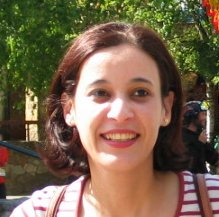 Leila Amgoud is Research Director (DR1) at CNRS (Centre National de la Recherche Scientifique),
Deputy Director of IRIT (Toulouse Institute of Computer Science) since January 2021,
Member of the ADRIA team at IRIT,
EurAI Fellow since 2014, and
PI of an ANITI chair on argumentation.
She obtained a Ph.D and HdR in Artificial Intelligence from Paul Sabatier University respectively in July 1999 and June 2009. Before joining CNRS in 2001, she was a postdoctoral researcher at the university of Liverpool, UK.
Her research interests lie within the broad area of knowledge representation and reasoning, in particular, Argumentation theory, Non-monotonic reasoning, Analogical reasoning, Practical reasoning, Decision making, Negotiation, Measuring inconsistency, Trust modelling, and Ranking systems.
Leila Amgoud is Research Director (DR1) at CNRS (Centre National de la Recherche Scientifique),
Deputy Director of IRIT (Toulouse Institute of Computer Science) since January 2021,
Member of the ADRIA team at IRIT,
EurAI Fellow since 2014, and
PI of an ANITI chair on argumentation.
She obtained a Ph.D and HdR in Artificial Intelligence from Paul Sabatier University respectively in July 1999 and June 2009. Before joining CNRS in 2001, she was a postdoctoral researcher at the university of Liverpool, UK.
Her research interests lie within the broad area of knowledge representation and reasoning, in particular, Argumentation theory, Non-monotonic reasoning, Analogical reasoning, Practical reasoning, Decision making, Negotiation, Measuring inconsistency, Trust modelling, and Ranking systems.
Expanding the Scope of Bayesian Argumentation
Abstract. A Bayesian approach to argumentation has, arguably, made great strides in illuminating long-standing questions about argument quality. In particular, the Bayesian framework allows nuanced evaluation of content-based differences in argument strength for individual arguments - both for arguments about facts and for practical arguments. It also provides a principled approach to summary evaluation in contexts of multiple, both mutually supporting and competing arguments, in final reckoning. What it has not done, however, is contribute systematically to an understanding of the dialectical process of argumentation, either in dyads or across large collectives. The talk reviews the literature on argument quality, but then focusses on recent work within the Bayesian framework to address this dialectical challenge.
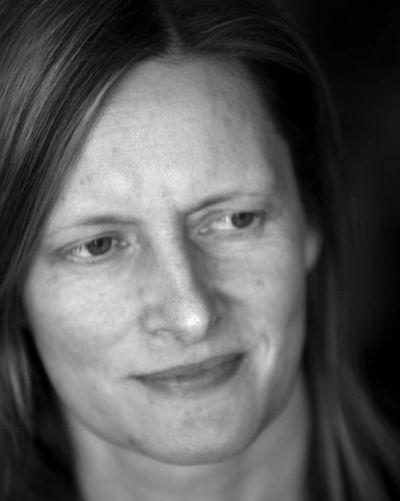 Ulrike Hahn is professor of psychology at the School of Psychological Sciences at Birkbeck, University of London, and
she is Director of the Centre for Cognition, Computation and Modelling.
She was awarded the Cognitive Section Prize by the British Psychological Society (December 2011),
the Kerstin Hesselgren Professorship by the Swedish Research Council (December 2013),
the Anneliese Maier Research Award by the Alexander von Humboldt Foundation (December 2014).
Ulrike is a Fellow of the Association for Psychological Science (December 2015)
and of the German National Academy of Sciences, Leopoldina (December 2015).
She received a Honorary Doctorate of the Lund University in Sweden (December 2017),
the Computational Modeling Prize: Applied Cognition from the Cognitive Science Society (December 2018),
and she is Corresponding member of the Bayerische Akademie der Wissenschaften (May 2022).
Her research interests are human rationality: judgment, decision-making, and the rationality of everyday argument;
social networks; and
language.
Ulrike Hahn is professor of psychology at the School of Psychological Sciences at Birkbeck, University of London, and
she is Director of the Centre for Cognition, Computation and Modelling.
She was awarded the Cognitive Section Prize by the British Psychological Society (December 2011),
the Kerstin Hesselgren Professorship by the Swedish Research Council (December 2013),
the Anneliese Maier Research Award by the Alexander von Humboldt Foundation (December 2014).
Ulrike is a Fellow of the Association for Psychological Science (December 2015)
and of the German National Academy of Sciences, Leopoldina (December 2015).
She received a Honorary Doctorate of the Lund University in Sweden (December 2017),
the Computational Modeling Prize: Applied Cognition from the Cognitive Science Society (December 2018),
and she is Corresponding member of the Bayerische Akademie der Wissenschaften (May 2022).
Her research interests are human rationality: judgment, decision-making, and the rationality of everyday argument;
social networks; and
language.
The Long Road to Trustworthy Natural Language Argumentation
Abstract. Argument(ation) Mining (AM) is the dimension of computational argumentation aiming at automatically processing natural language arguments and reason upon them. More precisely, argument mining aims at extracting, classifying and analysing natural language arguments and their relations from text, with the final goal of providing machine-processable structured data for computational models of argument. In this keynote talk, I will first introduce this research area, highlighting the main successful tasks and open issues in identifying argumentative structures from different kinds of texts (e.g., clinical trials, online user generated content, news articles). Then, I will present a key challenge which conjugate argument mining with formal computational models of argumentation, i.e., the assessment of the trustworthiness of natural language arguments, with a focus on fallacious argumentation, with the aim to show how these methods can be used to automatically identify fallacious arguments in political debates. Fallacies play a prominent role in argumentation since antiquity due to their contribution to argumentation in critical thinking education. Their role is even more crucial nowadays as contemporary argumentation technologies face challenging tasks as misleading and manipulative information detection in news articles and political discourse, and counter-narrative generation. I will conclude with some thoughts on the challenge of automatic generation of counter-arguments to fight online disinformation and hate speech.
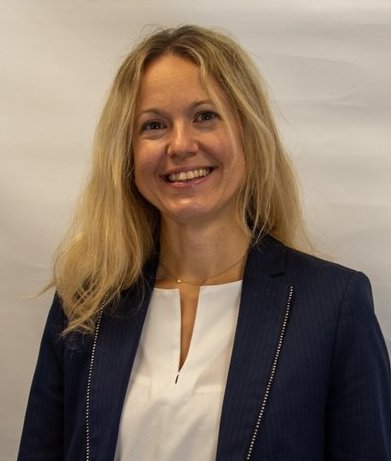 Serena Villata is a senior researcher (Directrice de recherche) in computer science at the CNRS and pursues her research at the I3S labatory where she is a member of the joint Inria-CNRS-UCA Wimmics team.
Her research area is Artificial Intelligence (AI), and her current work focuses on computational argumentation considering both reasoning on computational models of argument and mining natural arguments from text (argument mining). She is particularly interested in multidisciplinary applications of argumentation to the legal domain, to medical texts, to political debates and to social networks.
In November 2021, she was awarded with the Prix Inria – Académie des sciences jeunes chercheurs et jeunes chercheuses.
Since July 2019, Serena has been awarded with a Chair in Artificial Intelligence at the Interdisciplinary Institute for Artificial Intelligence 3IA Côte d’Azur on “Artificial Argumentation for Humans”. Since January 2021, she is the Deputy Scientific Director of the 3IA Côte d'Azur Institute.
Since December 2019, she is a member of the National Pilot Committee for Digital Ethics (CNPEN), and since October 2020 she is a member of the Scientific and Ethical Committee of the Cancer Data Platform of the Institut National du Cancer.
Serena is part of the Steering Committee of COMMA, JURIX (Foundation for Legal Knowledge Based Systems) and ECA (European Conference on Argumentation). Since September 2021, she is a member of the IAAIL executive committee (2022-2023).
Serena Villata is a senior researcher (Directrice de recherche) in computer science at the CNRS and pursues her research at the I3S labatory where she is a member of the joint Inria-CNRS-UCA Wimmics team.
Her research area is Artificial Intelligence (AI), and her current work focuses on computational argumentation considering both reasoning on computational models of argument and mining natural arguments from text (argument mining). She is particularly interested in multidisciplinary applications of argumentation to the legal domain, to medical texts, to political debates and to social networks.
In November 2021, she was awarded with the Prix Inria – Académie des sciences jeunes chercheurs et jeunes chercheuses.
Since July 2019, Serena has been awarded with a Chair in Artificial Intelligence at the Interdisciplinary Institute for Artificial Intelligence 3IA Côte d’Azur on “Artificial Argumentation for Humans”. Since January 2021, she is the Deputy Scientific Director of the 3IA Côte d'Azur Institute.
Since December 2019, she is a member of the National Pilot Committee for Digital Ethics (CNPEN), and since October 2020 she is a member of the Scientific and Ethical Committee of the Cancer Data Platform of the Institut National du Cancer.
Serena is part of the Steering Committee of COMMA, JURIX (Foundation for Legal Knowledge Based Systems) and ECA (European Conference on Argumentation). Since September 2021, she is a member of the IAAIL executive committee (2022-2023).
